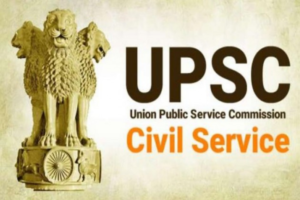
Introduction
In today’s digital age, students face an array of distractions that can hinder their focus and motivation. From social media notifications to the allure of mobile phones, staying on track with academic goals can be challenging. However, with effective strategies and a proactive mindset, students can navigate these distractions and maintain their motivation.
Understanding the Landscape of Distractions
In this section, we explore the various distractions that students encounter in the digital age. Social media platforms, mobile phones, instant messaging apps, and the pervasive culture of multitasking contribute to the fragmentation of attention spans among students. Understanding the nature and impact of these distractions is crucial for developing effective coping mechanisms.
Setting Clear Goals and Objectives
One of the foundational pillars of student motivation is the establishment of clear goals and objectives. By defining their academic aspirations and outlining actionable steps to achieve them, students can cultivate a sense of purpose that transcends momentary distractions. This section delves into the importance of goal-setting and provides practical tips for creating SMART (Specific, Measurable, Achievable, Relevant, Time-bound) goals.
Creating a Conducive Study Environment
A conducive study environment plays a pivotal role in minimizing distractions and promoting focus. From organizing study spaces to implementing digital detox strategies, this section explores practical techniques for creating an environment that fosters concentration and productivity. Tips for minimizing digital distractions and optimizing study spaces are discussed in detail.
Cultivating Intrinsic Motivation
Intrinsic motivation serves as a powerful driving force for student success. This section delves into the concept of intrinsic motivation and explores strategies for nurturing it. By fostering a sense of autonomy, mastery, and purpose, students can tap into their intrinsic motivation reservoirs and sustain their drive for learning amidst distractions.
Developing Time Management Skills
Time management is an indispensable skill for navigating distractions and maximizing productivity. This section explores effective time management techniques such as the Pomodoro Technique, time-blocking, and prioritization strategies. Practical tips for overcoming procrastination and maintaining focus on important tasks are provided.
Seeking Inspiration and Support
In times of adversity, seeking inspiration from role models and mentors can provide invaluable guidance and support. This section emphasizes the importance of building a support network and seeking mentorship opportunities. Strategies for finding inspiration and leveraging mentorship relationships to overcome challenges are discussed.
Practicing Self-Care and Well-Being
Amidst the hustle and bustle of academic life, prioritizing self-care and well-being is paramount. This section explores the link between mental and emotional well-being and student motivation. Strategies for practicing self-care, managing stress, and fostering resilience are highlighted, emphasising the importance of maintaining a healthy balance.
Conclusion
In conclusion, while distractions abound in the digital age, students can employ a variety of strategies to maintain their motivation and focus on their academic goals. By setting clear objectives, creating conducive study environments, cultivating intrinsic motivation, developing time management skills, seeking inspiration and support, and prioritising self-care, students can navigate distractions effectively and thrive in their educational pursuits. Ultimately, with proactive mindset and deliberate effort, students can overcome distractions and stay motivated on their journey of learning and growth.





